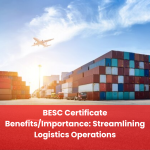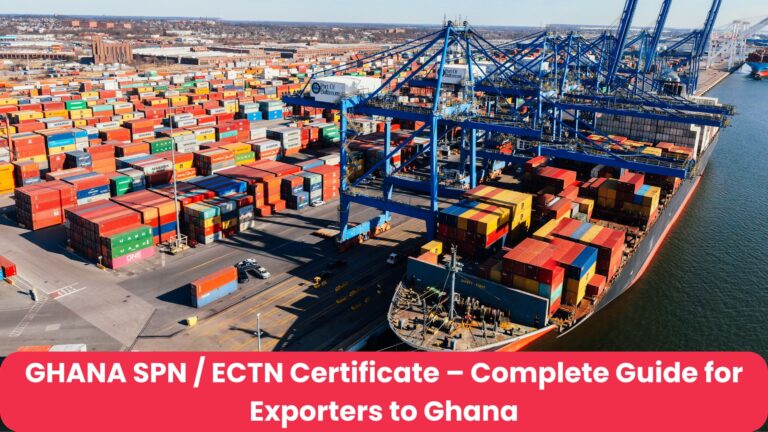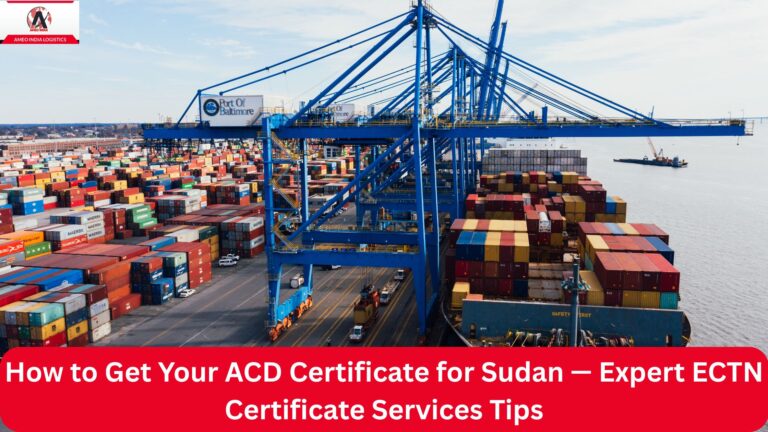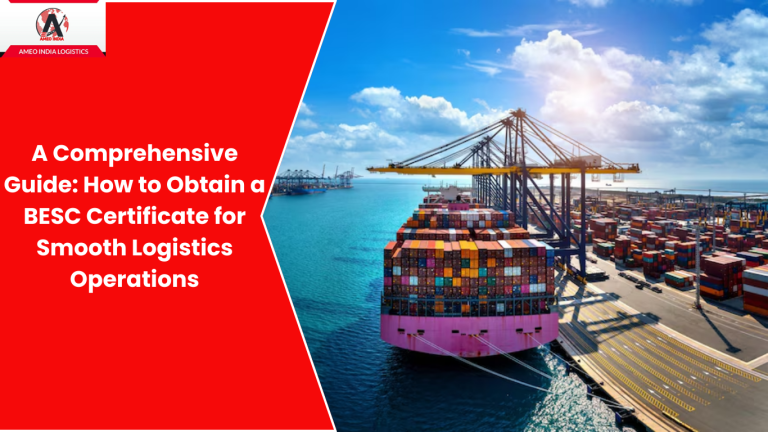In the intricate landscape of international trade and logistics, compliance with regulatory requirements is paramount. Among the essential documents for shipments to various African destinations is the Bordereau Electronique de Suivi des Cargaisons (BESC) certificate. Obtaining a BESC certificate is not only a legal obligation but also a critical step in ensuring smooth and efficient logistics operations. In this blog, we delve into the process of obtaining a BESC certificate, providing exporters and logistics providers with a comprehensive guide to navigate this crucial aspect of global trade.
Understanding the BESC Certificate:
The BESC certificate, also known as the Electronic Cargo Tracking Note (ECTN), is a mandatory document required for cargo shipments to many African countries. It serves as a key tool for enhancing maritime safety, security, and trade facilitation by providing accurate data about the consignment to customs and port authorities at the destination. The BESC certificate contains vital information such as shipper details, consignee information, vessel particulars, and cargo specifics.
Significance of the BESC Certificate:
Compliance with BESC requirements is essential for exporters and logistics providers to avoid delays, fines, or refusal of cargo at destination ports. The BESC certificate enables authorities to track and monitor cargo movements, contributing to enhanced security measures and efficient trade operations. Additionally, presenting a valid BESC certificate fosters trust and credibility with customers, strengthening business relationships and reputation in the market.
Process of Obtaining a BESC Certificate:
Obtaining a BESC certificate involves several steps and considerations to ensure compliance and efficiency in the logistics chain. Below is a comprehensive guide to navigating the process of obtaining a BESC certificate:
Gather Required Documentation:
Once you’ve contacted the agency, gather all the necessary documentation required for BESC certificate issuance. This may include commercial invoices, packing lists, bills of lading, export declarations, and other relevant documents pertaining to the consignment. Ensuring the accuracy and completeness of the documentation is crucial to expedite the certification process.
Submit Application for BESC Certificate:
Apply for the BESC certificate to the authorized issuing agency along with the required documentation. Depending on the issuing authority and the destination country, the application process may vary.
Pay Applicable Fees:
Be prepared to pay the applicable fees for BESC certificate issuance. The fee structure may vary depending on factors such as the issuing authority, type of cargo, and destination country. Ensure timely payment of fees to avoid delays in the certification process.
Await Processing and Issuance:
Once the application and documentation are submitted, await processing and issuance of the BESC certificate by the issuing authority. The processing time may vary depending on factors such as the volume of applications, completeness of documentation, and operational efficiency of the issuing authority. It’s advisable to follow up with the issuing authority periodically for updates on the status of the application.
Receive and Verify BESC Certificate:
Upon issuance, receive the BESC certificate from the issuing authority and verify the accuracy of the information contained therein. Ensure that all details pertaining to the consignment are correct to avoid any discrepancies during customs clearance at the destination port. If any errors or inaccuracies are identified, notify the issuing authority promptly for rectification.
Transmit BESC Certificate to Relevant Parties:
Once verified, transmit the BESC certificate to relevant parties involved in the logistics chain, including the shipping line, customs broker, and consignee. Timely transmission of the BESC certificate ensures smooth coordination and compliance with regulatory requirements throughout the shipping process.
Conclusion:
Obtaining a BESC certificate is a critical step in ensuring compliance and efficiency in international trade and logistics operations. By understanding the process and following the guidelines outlined in this comprehensive guide, exporters and logistics providers can navigate the complexities of BESC certification with confidence. At Ameo India Logistics, we remain committed to empowering our clients with reliable and compliant logistics solutions, driving success in the competitive global marketplace










